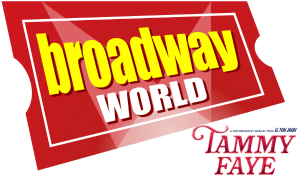BWW Reviews: World Premiere of WE WERE NOTHING! Shows the Downfalls of Virtual Communication
About 10 years ago, as a twenty-year-old undergrad at UCLA, I had a great idea for a play, or so I thought. What if someone were to write a two character dramedy about a young couple who meets and falls in love online? And what if all of their communication was through facebook messages and e-mails? And what if, even though they share the stage together and stand just a few feet apart, they never interact with each other and only interact with their computers? I shared my brilliant idea with my professor and mentor, the wonderful Gary Gardner. Despite my enthusiasm, Gary furrowed his brow, took another drag from his cigarette, and then looked me in the eye and said, "Jeff, how on earth are you going to make that interesting?"
And that was that. I never thought about the project again until I saw the world premiere of Will Arbery's new play, We Were Nothing! While Arbery does a damn good job at illustrating the limits of virtual conversation and cleverly uses text jargon in his dialogue, the piece does fall into the trap I was warned about. If the point is that the characters can't fully connect through social media, will the audience have the same problem connecting to the characters and their story?
Though it does have its faults, We Were Nothing! has plenty to love, particularly Will Arbery's mastery of modern day lexicon. His play centers on two high school bffs trying to stay in touch during college. They're valley girls with smart phones, and that's exactly how they sound. It's fun to hear them say exactly what they'd write to each other in text messages, autocorrect errors and all. But Arbery's attention to creating an authentic virtual discourse between his characters causes a few problems. His characters and their dialogue are vapid on purpose. After all, Arbery's point is to show that online interaction does not equate to true human interaction, but the more pointless the conversations become, the less of a hold they have on the audience. The dull conversations allow for some comedic moments-like a humorous scene in which one girl insists that the other listen intently as she reads the lyrics to the Goyte song "Somebody That I Used to Know"-but we get the play's overall point in the first few minutes, and our interest wears thin quickly after that.
While actresses Kayla Newman and Terah Zolman are fantastic and more than able to handle Arbery's text (I'm sure questions such as "Does this line have three 'likes' and two 'you knows,' or is it the other way around?" were uttered quite a bit during rehearsals), Arbery doesn't give them anything to differentiate their characters. Both characters are slower than dial-up and make the Kardashians look like Rhodes Scholars. They're wooden, one dimensional, and dull, and their flatness simply doesn't serve the piece. I know I'm biased on the topics of the internet and social media. I met my one and only through OKCupid.com and I write for an online publication, so I'm kind of a fan of this newfangled thingamajigger known as the interwebs. Perhaps I feel this way because of my love of the internet, but the problem in Shelly and Kelly's relationship isn't the way they communicate but the fact that they have nothing to talk about and are completely inept at developing human relationships. If they were both dynamic young women with a strong pre-college friendship, it would be much clearer that the only force working against them is their method of communication. But as the characters are written right now, it seems the problem with Shelly and Kelly is that they are so bland, it's doubtful they know how to effectively engage with anyone, whether in person or virtually.
Director Bastion Carboni tries to disguise the problems with the characters by keeping the dialogue skipping along at a quick pace, but his staging doesn't reinforce all of Arbery's central ideas. Though the girls communicate through texts, phone calls, skypes, and facebook messages, we never see them with a phone or laptop in hand, and they often deliver their lines facing each other. Granted, Carboni makes us focus on the dialogue by eliminating the props, but it's sometimes difficult to figure out how Shelly and Kelly are communicating from moment to moment. I appreciate that Carboni refrains from hitting us over the head by projecting every e-mail and text message on the wall or having his actresses navigate through an onstage maze of computers and phones. Still, a couple of laptops and cell phones wouldn't hurt.
Despite its problem areas, We Were Nothing! is a fun introduction to the promising voice of Will Arbery. It's not nothing, but it could be something more.
NOTE: Due to adult language, WE WERE NOTHING! is recommended for mature audiences only.
Running time: Approximately 1 hour and 10 minutes with no intermission.
WE WERE NOTHING!, produced by Poison Apple Initiative, plays the Monstrosity Studio at 2514 Wilson St, Austin 78704 now thru Saturday, December 21nd. Performances are Wednesday thru Saturday at 8pm. Tickets are $15-$25. For tickets and information, visit http://poisonappleinitiative.bellstrike.com/.
Comments
Videos
